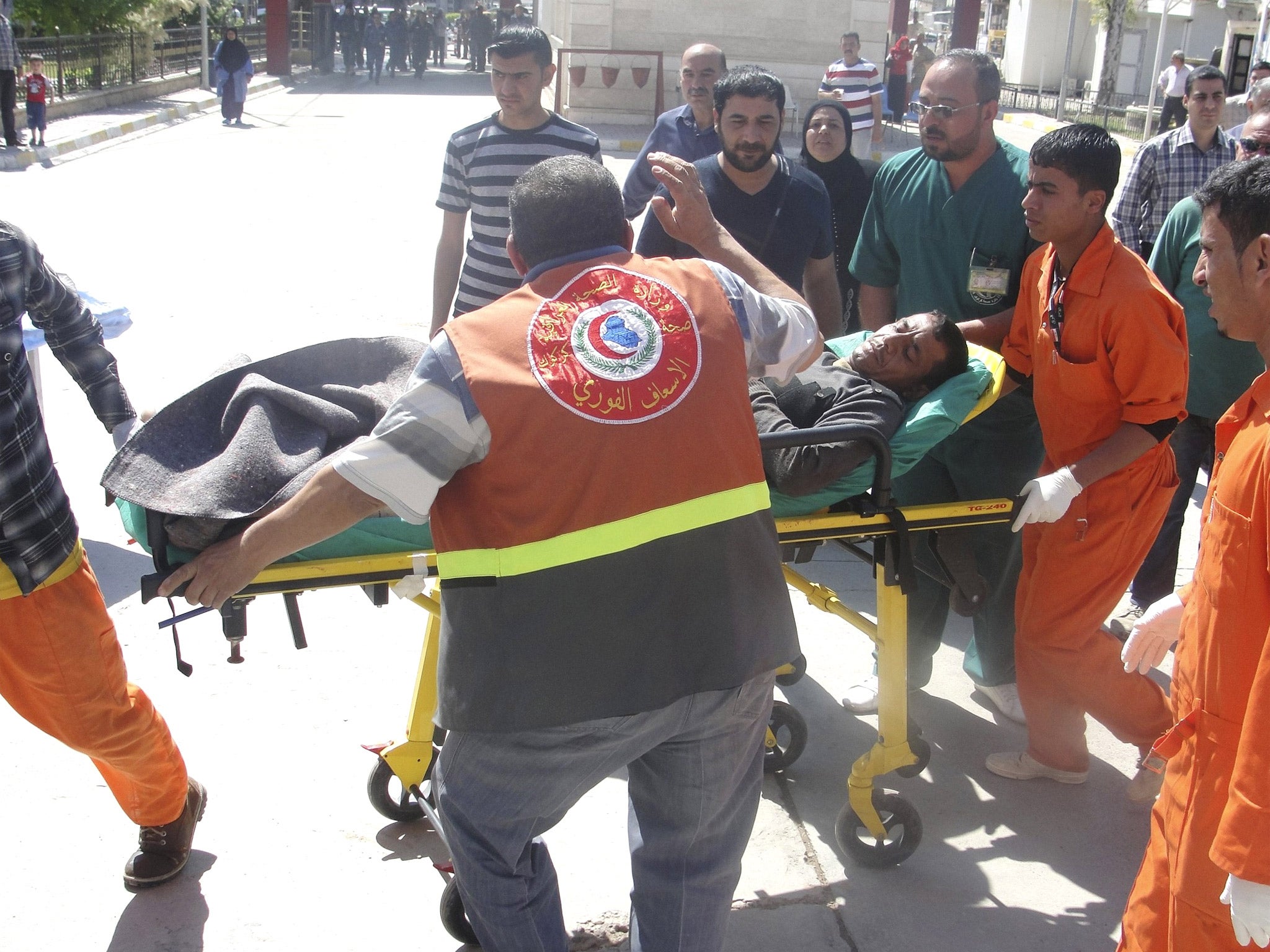Dozens die as anger spreads over Iraq army raid on protest camp
Sunnis take to streets following soldiers’ clash with demonstrators in Hawijah province

Iraqi security forces raided a Sunni Arab protest camp in the provincial town of Hawijah this morning, leading to clashes in which 36 people were killed and more than 70 injured.
The army’s alleged assault on peaceful demonstrators threatens further armed conflict between the Shia-dominated government and Iraq’s Sunni minority, who are protesting at being treated as second-class citizens since the fall of Saddam Hussein 10 years ago.
As news of the clashes spread through Sunni Iraq, street protests erupted in solidarity with Hawijah, a Sunni bastion 30 miles west of Kirkuk. Some 1,000 people took to the streets in Fallujah, west of Baghdad, after calls for protests broadcast from the minarets of mosques. “War! War!” was the chant of some. In Ramadi, capital of Sunni Anbar province, crowds threw stones at a military convoy, overturning and setting fire to a Humvee.
The violence in Hawijah started at 5am when security forces, backed by helicopters, entered the protesters encampment. The Defence Ministry claims the demonstration had been infiltrated by militants, of whom it says 20 were killed along with an army officer and two soldiers. The army reported finding weapons including 34 Kalashnikovs and four PKM machine guns, and made 75 arrests. In response to the raid there were attacks on two army checkpoints near Hawijah in which 13 people died.
Protesters say security forces provoked the violence. “They invaded our sit-in, burned the tents and opened fire indiscriminately and killed and wounded dozens,” Abdulmalik al-Juburi, a leader of the Hawijah sit-in told AFP. “This pushed Arab tribesmen to go to the streets and attack several checkpoints to avenge protesters. We only have four rifles to protect the sit-in, and there are no wanted people among us.”
The Iraqi army said its target was a Sunni insurgent group, the Naqsh-bandiya Army, which is inspired by a mixture of Sufi Islam and Iraqi nationalism. Hawijah is known for its militancy and was the scene of fierce fighting between insurgents and US troops during the American occupation. Kurds in nearby Kirkuk see the town as the staging area for repeated suicide bombings directed at Kurdish civilians and security facilities.
The violence is by far the worst since the protests began in December when bodyguards of the Sunni Finance Minister Rafe al-Essawi were arrested. One aim is to initiate a “Sunni Spring”, emulating the Arab Spring uprisings. Until now, the demonstrators were largely peaceful, emphasising human rights and using non-sectarian slogans while demanding the resignation of Iraq’s Prime Minister Nouri al-Maliki. The Sunni movement is split between those who want reform of the political system established since the US invasion and those who want a counter-revolution to overthrow the Shia-Kurd hegemony. Iraq’s Sunnis have been encouraged by the success of the largely Sunni-led insurgents in Syria and support from the powers in the Gulf such as Saudi Arabia and Qatar.
Mr Maliki set up a special ministerial committee to investigate what happened in Hawijah in a sign of the government’s concern that it could face more protest and a strengthened insurgency. This has never died away, with 300 people killed last month, mostly Shia civilians slaughtered by al-Qa’ida bombers.
A further danger for the government is that the protest movement is uniting Sunnis, who have been divided on how to respond to their displacement from power since 2003. Security in Sunni areas is partly reliant on the 80,000 Sunni militiamen of the al-Sahwa movement that allied itself to the US army in opposition to al-Qa’ida’s extreme violence in 2006 and 2007. If these forces were alienated by the killing of peaceful protesters, the government might find itself hard put to retain control of Sunni provinces.
Al-Qa’ida itself appears to have become stronger in the past year, especially since departure of the last US troops in 2012, while greater Sunni confidence since the Syrian revolt suggests the balance of power is shifting in their community’s favour.
Subscribe to Independent Premium to bookmark this article
Want to bookmark your favourite articles and stories to read or reference later? Start your Independent Premium subscription today.

Join our commenting forum
Join thought-provoking conversations, follow other Independent readers and see their replies